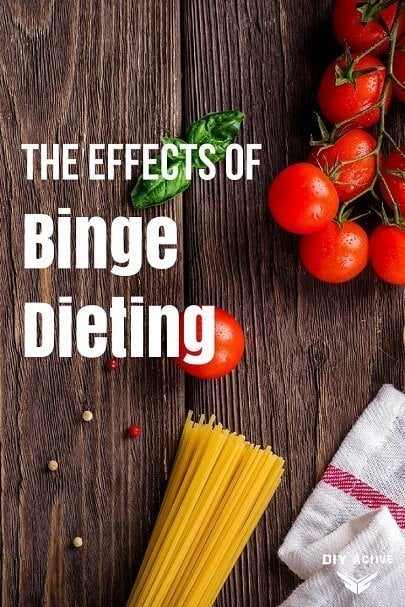Effects of Dieting: Eat to live and lose weight
So what exactly are the effects of dieting? Dieting can have harmful emotional and physiological consequences and can be ineffective in the long run by regaining the weight that was originally lost. Our physiology is not made to restrict food and diet, a new mindset is needed that uses our physiology in our favor to lose and maintain the weight we want. We need a healthy lifestyle!
Effects of Dieting
So you want to lose the love handles and drop that extra 10-15 pounds, what do you typically do? Of course, the most common answer is dieting. But are there any effects of dieting? For example, starving yourself by only eating salads or celery.
This leaves you feeling utterly hungry 24/7 and constantly fighting your urges to not eat the entire box of doughnuts in the break-room!
We’ve probably all been on a diet at one point in our lives or we are constantly dieting, everyone has done it and it usually leaves us feeling empty or even emotionally drained. Modern research (even research from the 1950s) paints a different light on dieting.

Dieting and severe food restriction that results in quick, massive weight loss (>25% body weight) can have massive physiological and psychological effects (Garner & Wooley 1991; Keys et al. 1950).
These negative consequences can have lasting results that are slow to dissipate, such as an increased risk of bulimia and an increased propensity for binge eating, even after their per-diet weight was regained (Keys et al. 1950).
Though harmful side effects can occur with severe food restriction dieting, typical dieting can have negative consequences (like nutrient restriction) but can also be flat-out ineffective.
For instance, a study in the early 1990s in which a group of obese women who lost an average of >20lbs but were not taught about proper healthy eating habits actually regained all of that weight within four years, indicating that diet or food restriction is simply ineffective at keeping fat off in the long-term (Hensrud et al. 1994).
Long Term Effects of Dieting
These dieting programs can be effective in the short-term but are quite ineffective in the long run with not only regaining weight (Sarwer & Wadden 1999) but the positive psychological effects of weight loss (an increase in self-esteem and well-being) also return to pre-dieting status (Foster & Wadden 2002).
We need healthy eating habits not only for psychological reasons but also to live a healthy life (Lowe & Timko 2004).
During times of metabolic stress, our body actually secretes cortisol which causes the metabolism of fats and carbohydrates, good right?
Not so fast, during times of long-term metabolic stress, cortisol actually causes fat take-up and storage as sort of a safeguard against future periods of metabolic stress (Bergendahl et al 1996). Wouldn’t you know that most of these fat up-take receptors are in the abdomen: say hello to belly fat!
This all boils down to the fact that dieting cannot counteract the environmental and physiological factors that influence and promote weight gain (Lowe 2003), there needs to be a lifestyle change.
In fact, we need to forget the word ‘diet’ exists in this sense of the word, because honestly what’s the point of dieting for a month only to have a terrible lifestyle the remaining 11 months of the year?
Wrap-Up
A lifestyle change and a rebalanced mindset are in order to actually develop healthy eating habits that become second nature.
They don’t have to be earth-shattering changes, it can be as simple as eating a healthy, nutritious breakfast every morning (see Breakfast), eating smaller meals, calculating and sticking to macros, or a hybrid of these systems that best fits your busy lifestyle.
If you take anything away from this article is that food restriction and dieting is not the road to a healthier you, it paves the way for terrible eating regimens that can affect your mood, your physiology, and even a less Active you!
References
Bergendahl M, Vance ML, Iranmanesh A, Thorner MO & Veldhuis JD (1996) Fasting as a metabolic stress paradigm selectively amplifies cortisol secretory burst mass and delays the time of maximal nyctohemeral cortisol concentration in healthy men. J Clin Endo Meta 2:692-699.
Foster GD & Wadden TA (2002) Social and physiological effects of weight loss. In Eating Disorders and Obesity, 2nd ed., pp. 500-504. London: The Guilford Press.
Garner DM & Wooley S (1991) Confronting the failure of behavioral and dietary treatments for obesity. Clin Psychol Rev 11: 729-780.
Hensrud DD, Weinsier RL, Darnell BE & Hunter GR (1994) A prospective study of weight maintenance in obese subjects reduced to normal weight without weight-loss training. Am J Clin Nutr 60:688-694.
Keys A, Brozek J, Henschel A, Mickelsen O & Taylor HL (1950) The Biology of Human Starvation. Oxford, MN: University of Minnesota Press.
Lowe MR & Timko CA (2004) Dieting: really harmful, merely ineffective or actually helpful? British J of Nutr 92:19-22.
- Post-Workout Meal: Getting the Most from Your Workout - January 22, 2024
- 6 Ab Exercises To Blast Your Core - December 17, 2023
- 10 Office Exercises You Can Do To Burn Calories - November 19, 2023